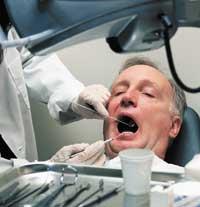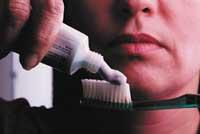Why do we have bad breath?
Often, in addition, it can happen that these people do not perceive their breath because, as a result of a loss of sensitivity, their entire olfactory system is ‘blai’ of that smell. Many times they realize the bad smell they release from their mouth.
How many people does it affect?
Halitosis is an ancestral issue and in the Bible there are also references or references to this problem. On the other hand, in primitive countries natural solutions or remedies have been proposed: eggshell, aromatic nails, medicinal plants (mint, etc. ). ).

Recent statistics show that it affects a high percentage of the population. In the US, for example, about half the population uses cosmetic products against this problem.
Why does it happen?
This bad breath occurs by increasing the proportion of sulfur substances in the air we emit through the mouth or nose. This may be due to dry mouth that involves low fluid intake, speech, stress, and some ingested medications (anxiolytics, antihypertensives, or antibiotics). In these situations the amount of saliva is also reduced, so the canvas is not cleaned properly and more food remains in the mouth. This increases the contact between the surface of the tongue and bacteria.
Food measures rich in protein or with aromatic substances such as garlic, onion or species also contribute to halitosis. Also the consumption of coffee, tea, alcohol and especially tobacco.
This bad odor also appears in people with dental problems, since along with periodontitis bacteria produce odor gases. Halitosis is also caused by other infections (kidney, lung, tonsillar) and diabetes. It also appears next to the menstruation or menstruation of women and in the presence of oral infection (cavities, phlegm). In children this can also be due to nasal problems, since at this time the nose and mouth are very attached.
But the problem is, ultimately, that the surface of the tongue is dirty. Therefore, people who have fractured the surface of the tongue tend to have a bad odor in the mouth due to the accumulation of remains and bacteria in these cracks or cracks that are responsible for the production of sulfur substances.
However, we must distinguish two types of halitosis: a pathological and a physiological one. In pathology, bacteria (especially anaerobic) produce sulfur volatile substances that produce odors. On the contrary, physiological halitosis, that is, temporary odor, appears when waking up or after smoking coffee, alcohol, strong foods (with spices) or tobacco.
How is it diagnosed?
To confirm that the odor of the mouth is halitosis, the dentist performs several tests:
- One of these tests is to smell the air that expels after the patient keeps the mouth closed for 30 seconds. In this way, you can distinguish whether the smell comes from the nose or the contour of the mouth.
- Another test is that of the spoon. Rub the back of the tongue with a spoon and check if this way you get a yellowish theme. It is then identified whether or not the substance causes halitosis.
What to do to remove odor?
- First of all, it is necessary to heal the mouth, treating inflammations of the gums, cavities and so on (if any). But other causes must also be treated: diabetes, general infections, etc.
 Toothpaste or mouthwash should contain antibacterial substances. These products should always be used under the dentist's prescription.
Toothpaste or mouthwash should contain antibacterial substances. These products should always be used under the dentist's prescription. - It is recommended to reduce the number of a la carte proteins, avoid large intervals between meals, avoid ingesting odorous foods and drink plenty of water to avoid excessive drying of the mouth. On the other hand, it is advisable to leave coffee, alcohol and tobacco, or at least reduce it.
- Cleaning the mouth is essential, properly brushing teeth and tongue. For cleaning the tongue you can use both the brush and the washing machine. At first it can cause nausea, but it is important not to despair and continue with this method, the tongue is usually dirty and the main cause of the bad smell, as we have seen before.
- On the other hand, toothpaste or mouthwash should contain antibacterial substances. These products should always be used under the dentist's prescription: at first twice a day and following the expert's instructions, the dose will be progressively reduced.
- Another solution may be the use of products that disguise odor, such as licorice or menthol. But its effect lasts little and, moreover, does not attack the root of the problem.
The best food against bad odor of mouth The mouth is a closed, wet cavity, so bacteria are easily concentrated and reproduced. When bacteria reproduce disproportionately, halitosis appears. Some foods are very useful to fight this problem.
|





